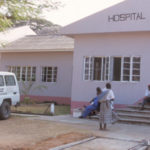
Marking the 21st anniversary of the landmark Maputo Protocol, which guarantees extensive rights to African women and girls, Ipas hosted a two-day regional conference in Mozambique devoted to exploring the challenges and successes of implementing this fundamental treaty for gender equity.


The U.S. Supreme Court’s decision to overturn Roe v. Wade officially denies millions of U.S. residents fundamental rights—to health care, to bodily autonomy, and to freedom.

Kizza Blair is a fourth-year medical student in Uganda and a member of Medical Students for Choice. In this Q&A, we ask him about the value of safe abortion care and the impact of the Helms Amendment, a U.S. law that restricts U.S. foreign assistance funding for abortion services and disproportionately affects Black and brown women in low- and middle-income countries.


The UN Human Rights Council (HRC) has adopted a resolution acknowledging the need for safe abortion care for women and girls living in humanitarian settings around the world.

Medical abortion gives women the option to take pills to have an abortion instead of having a surgical procedure. A new article by researchers from Ipas and Advancing New Standards in Reproductive Health (ANSIRH) at the University of California, San Francisco (UCSF), lays out a regulatory pathway for medical abortion to be made available without a prescription.




